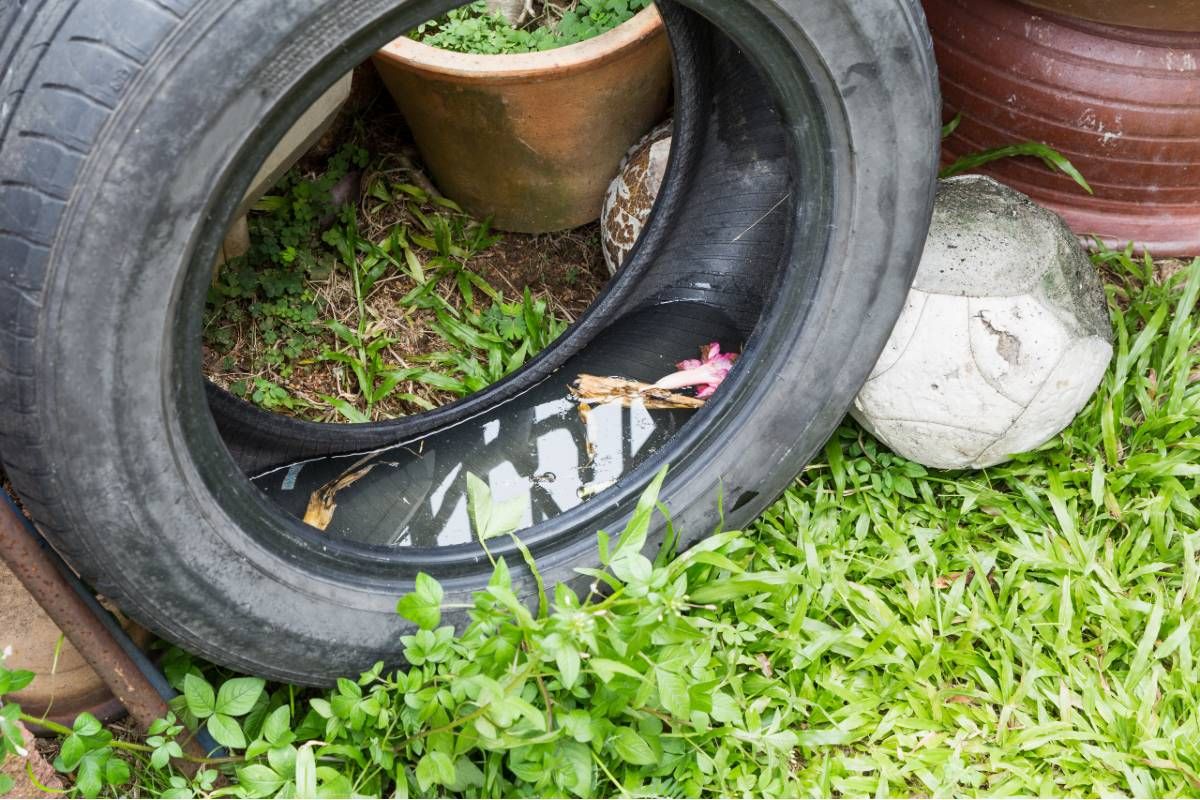Warmer months can mean more mosquitoes biting and breeding. Increased mosquito numbers can generally be experienced with high rainfall. In NSW, some types of mosquitoes can potentially transmit viruses such as Ross River and Barmah Forest and in rare instances, Murray Valley encephalitis and Japanese Encephalitis.
This year we're encouraging event organisers to be proactive in the management of mosquitos at their events. For further information please go to Mosquito management at temporary events.
Stay Protected
Your best protection against mosquito bites and diseases they can carry is to avoid mosquito bites. To reduce the risk of contact with adult mosquitoes, apply self-protection measures such as:
- use an effective mosquito repellent on exposed skin and reapply within a few hours. The best mosquito repellents contain Diethyl Toluamide (DEET), Picaridin, or oil of lemon eucalyptus
- cover up as much as possible with light-coloured, loose fitting clothing and covered footwear
- take special care during peak mosquito activity hours, particularly at dawn and dusk when mosquitoes are most active.
- minimise the time spent in well-shaded, cool places, particularly around areas like swamps and wetlands where mosquitoes are most active
- using air-conditioners or fans within the home
Simple steps to reduce mosquitos around your house & farm
Mosquitoes require water in which to breed. Females lay eggs on the water surface or on water's edge. The eggs hatch into larvae which live in water and become pupae, before emerging from the water as an adult, flying mosquito. By removing stagnant water from around your home you can prevent mosquitoes from breeding.
- Tip water from containers and objects
- Store items away when not in use
- Throw away items you do not use
- Cover all window, doors, vents and other entrances with insect screens
- Repair any damaged screen
- Keep lawns mowed
- Drill holes in tyres used for swings and garden surrounds to allow water to drain away
- Overturn boats, canoes and dinghies or remove drain plug so that they do not hold water after rain
- Empty all flower vases, pot plants, containers and other receptacles that hold water
- Clean gutters regularly
- Stock fish ponds and ornamental ponds with fish. Keep the side of ponds clear from water weeds so the fish can get to the larvae
- Ensure swimming pools are treated regularly. If you are away for a period of time, for any reason, arrange for your pools to be maintained
- Screen all openings to tanks, wells or other large water containers with wire gauze no coarser than 1mm mesh. This prevents mosquitoes from laying eggs. Cut back and trim trees to prevent leaves and debris from blocking roof guttering
- Cut back and trim trees to prevent leaves and debris from blocking roof guttering
- Ensure open drains and channels are free from obstructions, especially weeds, grass, and other debris
If you live on a farm, additional precautions are needed to reduce opportunities for mosquitoes to breed. These include:
- Keeping dams and ground pools free of vegetation
- Checking dam walls and irrigation bays for leaks
- Being careful not to over-irrigate to avoid water collecting in low-lying areas for long periods of time
- Prevent irrigation water from flowing into and lying undisturbed in roadside table drains
Take Precautions when Travelling
In addition to the general protection measures above, travellers should:
- avoid known areas of high mosquito-borne disease transmission or outbreaks
- stay and sleep in rooms with fly-screens or air-conditioning
- use a bed net if the area where you're sleeping is exposed to the outdoors. Bed nets are most effective when they are treated with a pyrethroid insecticide, such as permethrin. Pre-treated bed nets can be purchased before travelling, or nets can be treated after purchase

